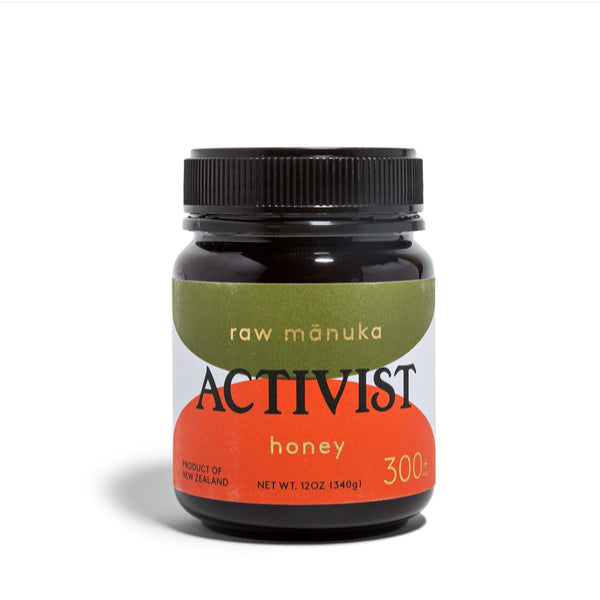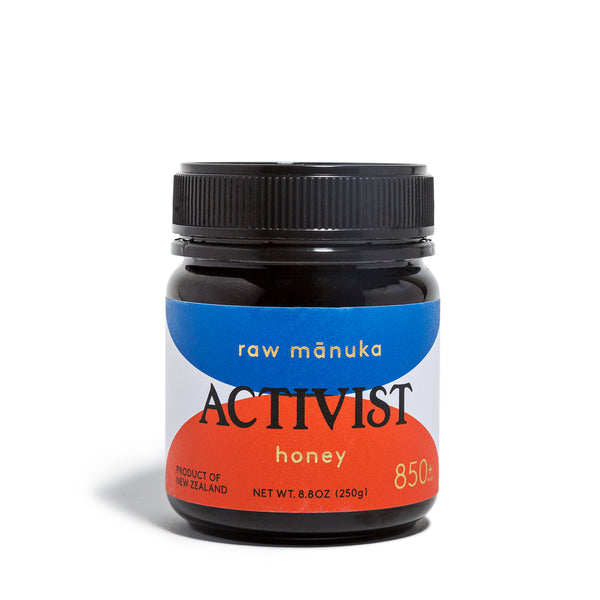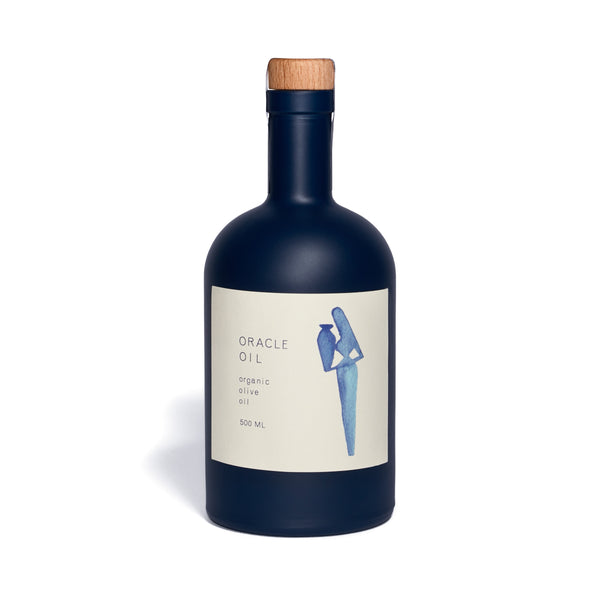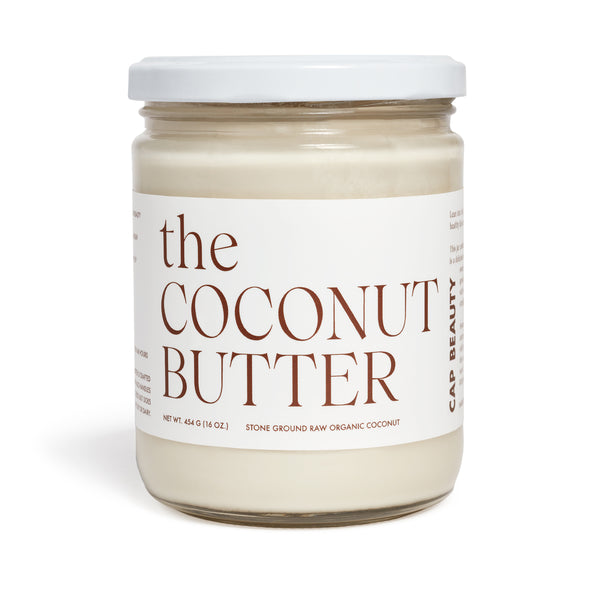How were you introduced to the power of plants? What led you down this path of nutrition and plant medicine?
I was lucky to grow up with a family who instilled the love of nature in me early on. They were always gardening, talking about plants and animals, and I could feel how much that connection enriched their own sense of place. My grandmother would always tell me stories about Old Florida. What it looked like when she was a little girl, before it had been developed. The magic in her descriptions always stuck with me and you can still find that in Florida if you know where to go.
When I was in college in Central Florida, I helped start a community garden on campus where we grew native plants, vegetables and herbs. My friend and teacher, Tina Richards, who was overseeing the students, was an herbalist and introduced me to tulsi, or holy basil, for the first time.
From there I was hooked and wanted to learn everything I could about plants and soon found myself studying with my teacher Emily Ruff at the Florida School of Holistic Living. Emily really opened the door for me as I went through her herbalism programs over the next few years. She also was instrumental in helping me heal from chronic fatigue in my early 20’s. I didn’t get great answers from doctors about what was going on and they just wanted to put me on a ton of supplements, but that didn’t feel like what my body really needed. So I went to Emily and she came up with a plan to get nourishing, building and adaptogenic herbs into my foods each day, as well as incorporate meat back into my diet. I felt the benefits pretty immediately. I had more energy, less anxiety and fatigue and could function normally again.
Making food with my herbal allies, made cooking and eating feel like a ritual and nourished me in a really different way. I started cooking for friends with herbs and food from my front yard garden and to my surprise everyone wanted the recipes. My friend Summer and I started a blog called The Great Kosmic Kitchen (named after the book The Great Kosmic Mother) back in 2012 as a way to share what we were learning about food and herbalism. It really evolved over the years and became an educational platform during a time when not many people were writing about herbalism online yet.
Looking back, I didn’t realize how pivotal my own healing would become in the work I do now, but the plants have a plan of their own and I’ve just gone with it. Through this work I’ve seen so many people inspired to take care of themselves and their community in a new way, feel connected to the healing power of plants and ultimately feel more connected to the greatest healer of all—mother nature.

What is your food philosophy?
Eat your herbs and cook for the season. Whether it’s adding more culinary herbs and spices to your meals or more medicinal herbs, when you eat this way it gives your body daily support. So instead of waiting until you get sick to take care of yourself, you’re doing it a little each day to feel more balanced.
When you cook for the season, you’re more aligned with your environment. Naturally, you already know this–warming foods in the cooler months and cooling foods in the warmer months. You crave hearty bowls of soup in the winter and refreshing salads in the summer. Your body needs different foods for each season and when you honor that, it’s amazing what a shift you can feel in your wellbeing.
How did your new book, The Kosmic Kitchen Cookbook come to be?
A few years ago, Summer and I self-published a zine as a way to take our recipes off of the blog and put them into more of a physical form. We sold it at boutiques and herbs shops across the country and loved how many people were connecting with it. One day, we got an order from a publisher, Roost Books, and wrote back saying we’d love to do a book if they were interested. So, we set up a call and the rest is history. We were in shock and couldn’t believe we were going to write a cookbook. We also had no idea how much work it would be either, but who really does when you’re doing it for the first time. Boy, did we learn a lot! We produced the photoshoots at our tiny studio in Bodega, CA and got to work with an incredible stylist Alysia Andriola and photographer Anna-Alexia Basile. It took about three years from start to finish and The Kosmic Kitchen Cookbook was released August 2020.
I’m still blown away by how many people love the cookbook and write to me all the time. They’ll send photos of the recipes and how they tell everyone they know about it. Getting that feedback really makes all of the hard work, late nights and years in the making worth it.
How do you start your day?
I’ve been letting myself get as much rest as I need at night, so I don’t usually set an alarm to get up. My kitty, named Moose, wakes me up around 7 am or so then I head to the kitchen to make a cup of coffee. I started drinking decaf over a year ago and it’s really helped with my anxiety and blood sugar balance.
I’ve been experimenting with a new morning routine over the past few weeks. Instead of jumping right into emails and work, I give myself an hour to let my creativity guide me for the day. I’ll slip back into bed or sit at my table with my coffee and flip through cookbooks, herb books, or write. It’s been such a spacious way to start the morning and I’ve found I’m more motivated and in a better mood for the rest of the day. Then I’ll have breakfast, usually some type of porridge, and get into my day.
What's always in your fridge?
There’s always the standards—white miso, quick pickled veggies, oat milk, heavy cream, butter, Dijon, sun dried tomatoes, ume plum paste, herbal vinegar, a chunk of good parmesan, seeds, cooked beans, protein of some kind, greens, fresh herbs, and root vegetables.
Then I’ve got my herbal preps which always makes my meals feel more special. Herbal preps are everyday accoutrements with herbs infused right in—think dressings, dips, snacks, desserts, vinegar, and drinks. Some of my go-to’s (that also are in the cookbook) are Ginger Maca Miso Dressing, Muhammara, Adaptogenic Nut Butter Bites, Turmeric Tahini Dressing, Dandelion Chai Concentrate, and a seasonal pesto.
What’s always in your pantry?
Same goes for my pantry. I’ve got the standards—all kinds of rice and grains, all kinds of beans, pasta, nuts, black sesame seeds, rice vinegar, chocolate, coconut milk and flake salt. When it comes to dried herbs for teas, my weekly rotation is usually nettle, dandelion, passionflower, skullcap, lemon balm, rose and tulsi. Then I’ve got my favorite herbal pantry preps—Turmeric Spice Honey, Fennel Seed + Salt Sprinkle, and Kosmic Curry spice blend. 

What do you turn to, to make you feel your best: food and all the other practices?
Cooking really is just a practice of self-compassion for me. I always feel better when I cook and eat my own food. It nourishes me on a deep level, which is why I am so passionate about sharing herbal recipes with others. This year, but especially this year during the wintertime, has shown me the importance of true rest. I’ve been going to the beach multiple times during the week, going to bed early and letting my body wake up when it wants to for the most part. I used to feel guilty about doing things that made me feel good, like I “should” be doing something else more productive, but I’ve found I feel way more aligned with listening to that voice that needs rest, play and time in nature. I’ve honestly been feeling better than I have in years!
What are some of your favorite cookbooks? And some of your favorite books on herbalism and plant medicine?
Cookbooks:
Super Natural Everyday or any book by Heidi Swanson :)
Japanese Home Cooking
Salt, Fat, Acid, Heat
Old World Italian
Full Moon Feast
Tartine Bread
Bar Tartine
Donabe
Tassajara Cooking
Tassajara Cookbook: Lunches, Picnics & Appetizers
At Home in the Whole Food Kitchen
Dinner at the Long Table
Everything by Ottelenghi
Herbal Books:
Herbal Recipes for Vibrant Health
Herbal Healing for Women
Tending the Wild
Planetary Herbology
The Yoga of Herbs
Ayurveda: The Science of Self-Healing
A Life of Balance
Desk Reference Guide for Nature’s Medicine
Medical Herbalism
The Lost Language of Plants
The Book of Herbal Wisdom
Plants for the People
Where is a good place to start for someone new to the world of plants?
I hope this doesn’t come across as a shameless plug for the cookbook, but I feel that our book is really great for someone new to herbalism. We wanted to make it as approachable as possible, especially with the elemental foundation of learning the energetics of the seasons, foods and herbs. Plus, there’s so many recipes you can make with ingredients you likely already have in your kitchen. I think having that immediate satisfaction helps you want to make it more of a practice.
I also really love Rosemary Gladstar’s books. The first herbal book I had, Herbal Recipe for Vibrant Health, is by her. It’s a classic home herbal book and includes information on herbs for kids, elders, bodycare, nutrition and everyday recipes. You can really feel her special connect to the plants in her writing and she makes everything feel fun and doable too. Definitely get this one if you don’t have it already. 
Favorite kitchen tool?
I found this little pan with a screen for toasting spices and seeds at the Farmhouse Mercantile in Boonville. It’s such a small thing, but it’s really great when you want to toast spices to bring out more of their flavors and aromas.
What ingredient are you most excited about right now?
Yuzu citrus. I was lucky enough to get some that were locally grown and could not get over how delicious they are. I ended up making an infused salt with the zest to enjoy throughout the year.
What do you wish more people knew about plants?
I wish more people knew that they communicate with us. It’s a different language that oftentimes you have to be quiet to hear, but they are always speaking to us, just like the earth is too. That’s where the deeper magic of plants lies and when you experience it, you’re never the same. The only way I can really describe it is that you realize you’re not alone and that there’s a deep love surrounding you at all times. This quote by Robin Wall Kimmerer in her book Braiding Sweetgrass really hits home, “Our indigenous herbalists say to pay attention when plants come to you; they’re bringing you something you need to learn.”
How do you end your day?
I love going on long walks down our road with my boyfriend, August. It’s become our little ritual to share about our days, spot the neighborhood hawks, turkeys and deer, and get outside to watch the sunset. After that I’ll make dinner for us and if I’m lucky August will pour me a bath in my outdoor tub. Soaking in hot water is by far my favorite way to let go of the day and relax before bed. 
TULSI MATCHA LATTE
On cool spring mornings, there’s nothing like the flavor of creamy pumpkin milk to accompany the bright flavors of tulsi and matcha. Tulsi is great to enjoy as a simple tea, but it’s also excellent in pesto, dressings, or added freshly chopped to top a meal. By blending this herb with matcha, you’ll be able to enjoy the grounded calm that tulsi provides along with the stimulating benefits of the matcha for alertness and energy.
More on tulsi—Tulsi, also known as holy basil, is one of the most delicious-tasting adaptogens. It’s highly regarded in Ayurveda for its ability to calm the nervous system and uplift one’s spirit. Tulsi flourishes in intense heat (dry or humid) and can easily be grown in a pot outdoors. Herbalist David Winston uses tulsi in his practice to relieve mental fog, stagnant depression, and allergies to mold and animal dander. Modern studies show tulsi to be effective in lowering blood sugar levels, protecting against ionizing radiation, and decreasing stress hormone levels.
Ingredients
½ cup tulsi tea, made ahead of time
¼ teaspoon CAP Beauty matcha powder
½ cup pumpkin seed milk or milk of choice
1 teaspoon raw local honey or sweetener of choice, optional
Makes 1 cup
Warm the tulsi tea in a small saucepan; you want it to be hot but not boiling. Add the matcha powder to a mug, then slowly pour in a small splash of the warm tulsi tea. Using a bamboo whisk, mix the matcha powder and tea until the matcha is smooth, forming a thin paste and making sure there aren’t any clumps. Add in the rest of the tulsi tea and continue to whisk until well blended. Warm your milk in the same small pot and add your sweetener, then pour the mixture into the tulsi matcha. Enjoy warm in the morning or in the afternoon for a soothing pick-me-up.










